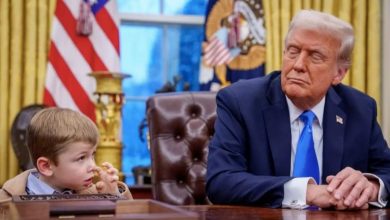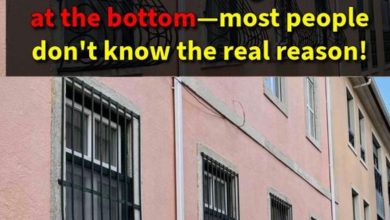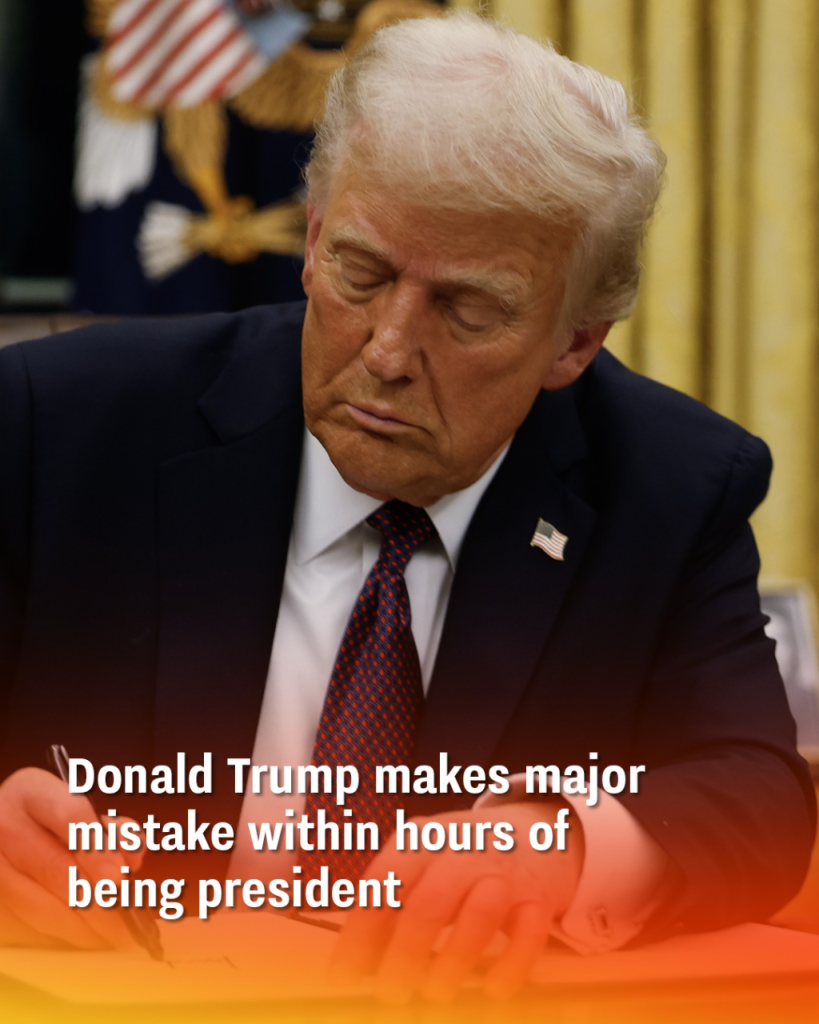
It seems Donald Trump has already made his first misstep during the early days of his second term as President of the United States, having officially taken office as the 47th president earlier this week.
Wasting no time, the 78-year-old Republican got straight to work by signing several executive orders on his first day in office, following Monday’s inauguration. Among the actions he took were withdrawing the U.S. from the Paris Climate Agreement and the World Health Organization (WHO), proposing changes to birthright citizenship, and postponing the contentious TikTok ban.
For context, an executive order is a formal directive issued to the federal government that carries legal weight and doesn’t require congressional approval.
However, Trump’s busy first day wasn’t without a major slip-up. While fielding questions from journalists, he made a glaring error when discussing a European nation.
In response to a reporter’s query about NATO members—including Spain—that fail to allocate the minimum 2% of their economic output to defense spending, Trump stumbled in his response.
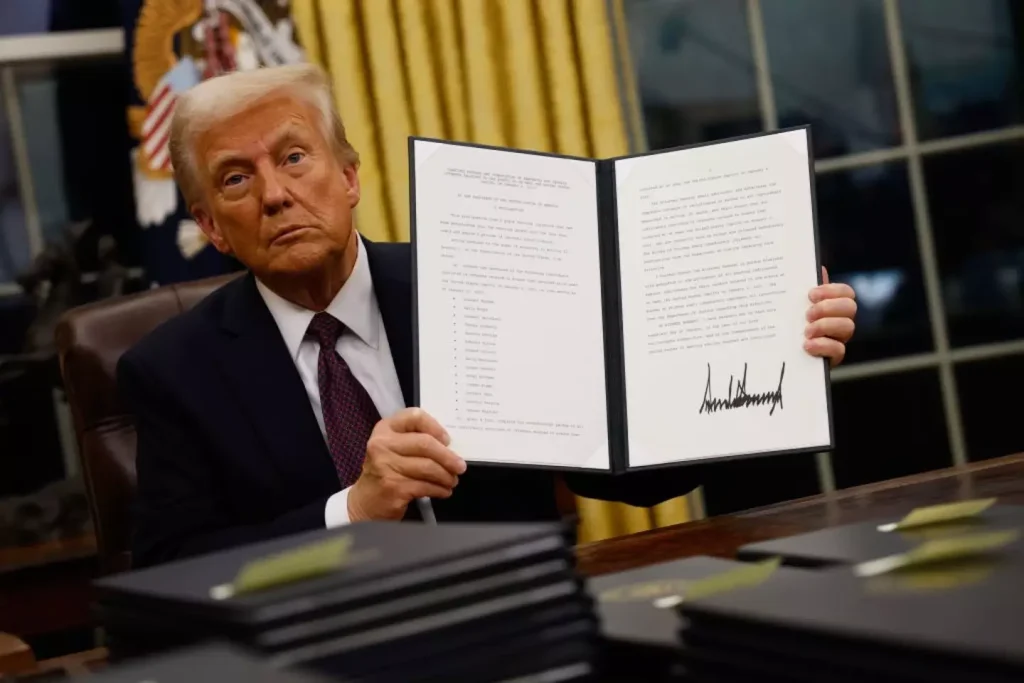
The president stated: “Spain is very low. They’re a BRICS nation, Spain. Do you know what a BRICS nation is? You’ll figure it out.”
However, he made an error—Spain is not, in fact, a BRICS nation.
BRICS is an international organization representing a group of developing nations, which includes Brazil, Russia, India, China, South Africa, along with newcomers like Egypt, Ethiopia, Indonesia, Iran, and the United Arab Emirates.
But Trump didn’t stop there. He went on to declare that the United States would impose significant tariffs on these developing nations, saying, “We are going to put at least a 100% tariff on the business they do with the United States.”
This move, if implemented, would mark a dramatic shift, effectively ending decades of free trade between these countries and the U.S.
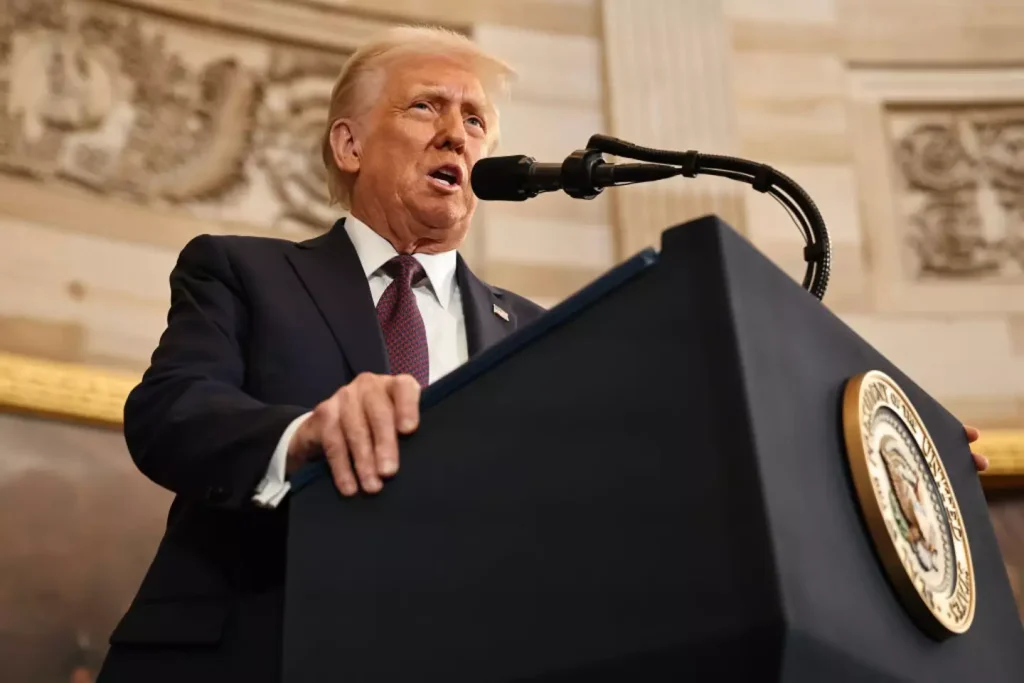
The Spanish government spokesperson, Minister Pilar Alegría, was somewhat puzzled as to why Trump referred to Spain as part of the BRICS group.
She said in a statement: “I don’t know if the affirmation made by President Trump was the result of a mix-up or not, but I can confirm that Spain is not in BRICS.”
Having been a NATO member for over 40 years, she emphasized that Spain considers the US to be “a natural ally.”
In recent years, defence spending has been a point of contention among several NATO members.
Spain is among eight nations that did not meet the 2% defence spending target last year. However, Trump has pushed for a higher target, demanding that NATO countries reach a minimum of 5% for defence spending.
Everything Trump Has Promised as the 47th US President
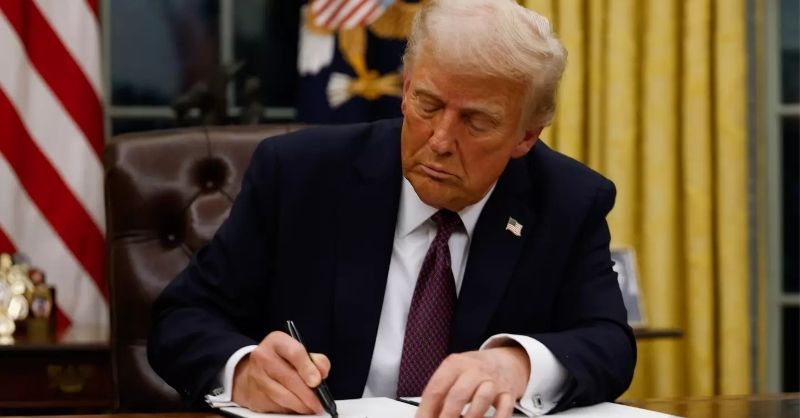
Reproductive Rights
Trump has kept his stance on abortion rights somewhat vague, largely backing the idea that individual states should set their own policies.
Experts are worried, though, that a second Trump presidency could lead to stricter measures on reproductive rights. Mary Ziegler, a professor at the University of California Davis who specializes in abortion law, explained to The Hill:
“You could have versions of the story where the Trump administration doesn’t really take aggressive action on abortion and does things that look more like reversing Biden-era policies and restoring Trump-era policies. And there’s a scenario where a second Trump administration goes much, much further on abortion, in court and outside of it.”
‘Only Two Genders’
During his inauguration speech on January 21, Trump declared: “As of today, it will henceforth be the official policy of the United States government that there are only two genders, male and female.”
He followed this up by signing an executive order stating that gender cannot be changed and repealing one of Biden’s policies aimed at preventing discrimination based on gender identity or sexual orientation.
Immigration
Trump vowed to put an end to illegal immigration during his inaugural address, promising to halt all unlawful entry and deport those he referred to as “criminal aliens.”
He wasted no time in declaring the situation at the southern border a national emergency.
Ending Birthright Citizenship
The 14th Amendment of the U.S. Constitution guarantees that anyone born in the United States is automatically a citizen. Trump wants to change this so that children born in the U.S. would only be granted citizenship if at least one parent is a lawful permanent resident.
This proposal is likely to face significant legal hurdles.
The ‘Make Greenland Great Again Act’
Trump has resurrected his controversial idea to negotiate with Denmark over the purchase of Greenland, citing its importance to U.S. national security.
However, Denmark has insisted that Greenland’s future is for Greenland to decide, and Greenland’s Prime Minister Mute Egede has reiterated that the island is not for sale.
January 6 Pardons
Following the January 6, 2021, Capitol riot, many participants faced severe legal consequences. Trump, however, has pardoned 1,500 of them.
In an interview with TIME before his inauguration, Trump said: “I am inclined to pardon many of them. I can’t say for every single one, because a couple of them, probably they got out of control.”
Pausing the TikTok Ban
The much-dreaded TikTok ban was short-lived, lasting just a few hours before the app returned with a message to users: “Welcome back! Thank you for your patience and support. As a result of President Trump’s efforts, TikTok is back in the US!”
Trump has given TikTok a 90-day extension to find a U.S.-based buyer.
Declassifying Government Files
In a move that has sparked backlash from security officials, Trump has pledged to release classified government documents.
At a rally in Washington, D.C., he announced: “We are going to make public remaining records relating to the assassinations of President John F. Kennedy, his brother Robert Kennedy, as well as Dr. Martin Luther King Jr.” He said this step would help restore “transparency and accountability to government.”
Electric Vehicles
Trump is looking to reverse Biden’s executive order that aimed for 50% of vehicles on U.S. roads to be electric by 2030, arguing that the mandate wasn’t legally binding. He commented that scrapping this rule is “common sense,” adding that Americans should have the freedom to “buy the car of your choice.”
Green Cards for College Graduates
Trump plans to allow non-U.S. citizens to stay in the country after graduating from college.
Speaking on the ‘All In’ podcast earlier this year, he said: “Somebody graduates at the top of the class, they can’t even make a deal with the company because they don’t think they’re going to be able to stay in the country. That is going to end on Day 1.”




